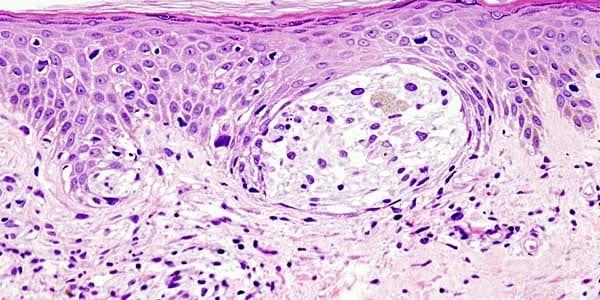The following is a summary of “Proteomic characterization of esophageal squamous cell carcinoma response to immunotherapy reveals potential therapeutic strategy and predictive biomarkers,” published in the March 2024 issue of Oncology by Ma et al.
Immunotherapy is the primary treatment modality for esophageal squamous cell carcinoma (ESCC). Yet, a significant proportion of patients fail to respond, often attributed to intrinsic drug resistance and the lack of reliable predictive markers. In this study, the researchers meticulously assembled a cohort comprising 73 treatment-naive patients with ESCC, divided into discovery and validation cohorts devoid of immune thrombocytopenia and subjected to anti-PD1 immunotherapy.
Employing state-of-the-art mass spectrometry-based label-free quantification, the study group conducted comprehensive proteomic and phosphoproteomic analyses of ESCC samples to delve into potential mechanisms underlying resistance and sensitivity to immunotherapy, focusing on identifying predictive markers. The comparative analysis unearthed distinct pathways linked to immune and mitochondrial functions that exhibited associations with ESCC immunotherapy sensitivity. At the same time, intriguingly, the activation of platelet-related processes demonstrated a negative correlation with CD8+ T cells and indicated ESCC immunotherapy non-sensitivity. Our meticulous exploration culminated in identifying predictive biomarkers for ESCC immunotherapy response, characterized by high accuracy levels (≥ 0.90), a discovery validated robustly within an independent cohort.
This comprehensive investigation offers invaluable insights into the intricate molecular landscape governing ESCC immunotherapy responsiveness, paving the way for the development of tailored therapeutic strategies and the implementation of predictive biomarkers to optimize patient outcomes in the clinical management of ESCC.
Source: jhoonline.biomedcentral.com/articles/10.1186/s13045-024-01534-9



















